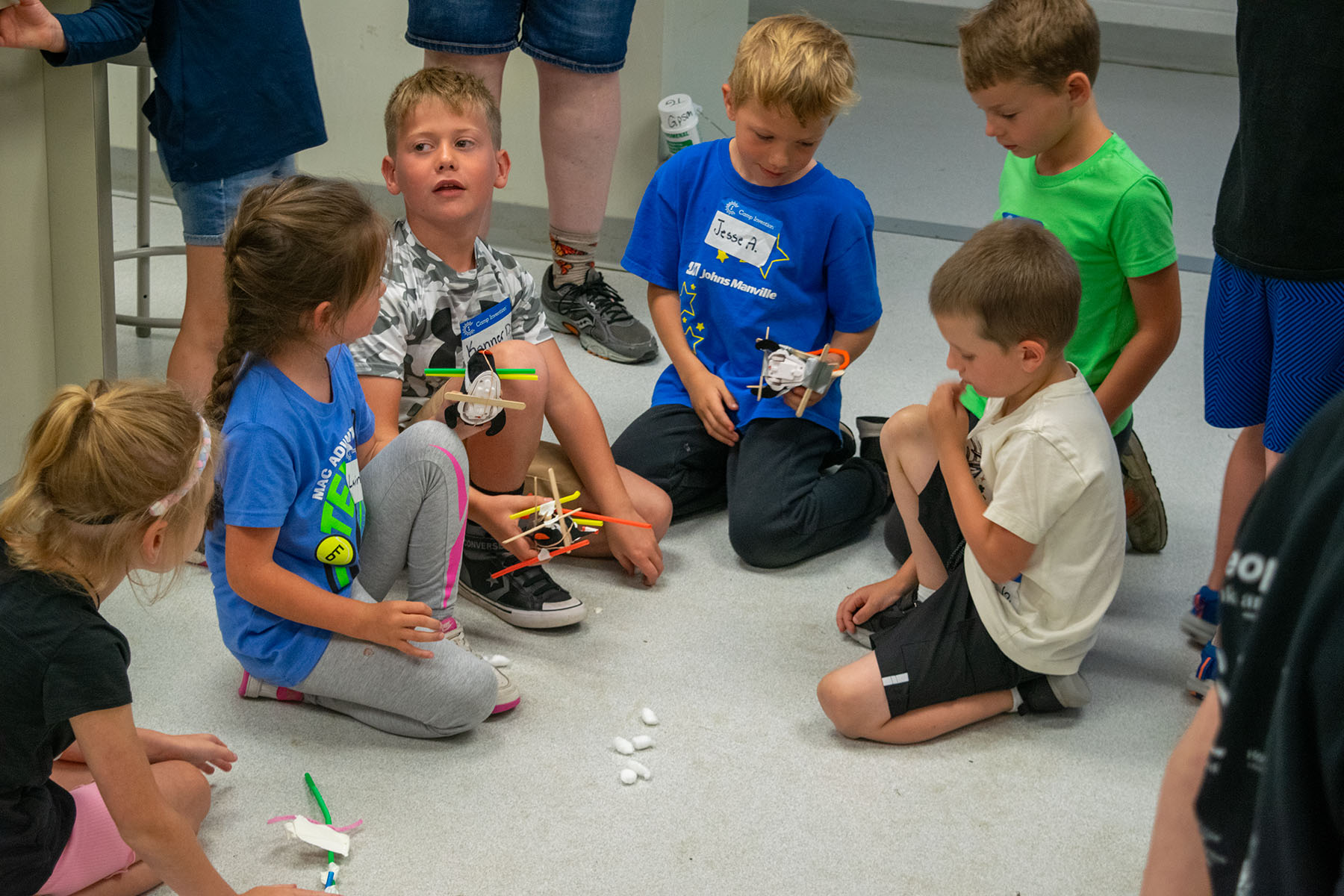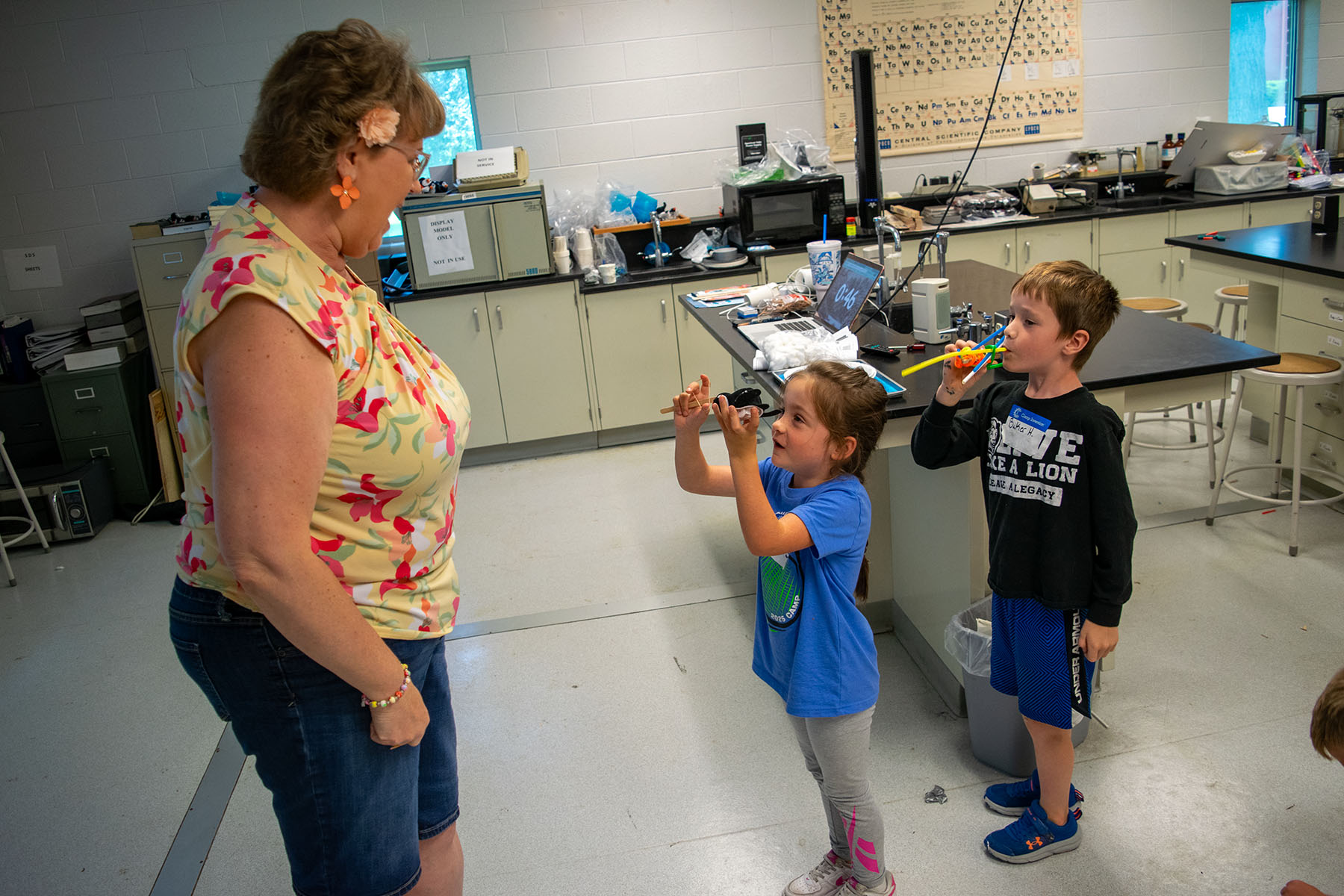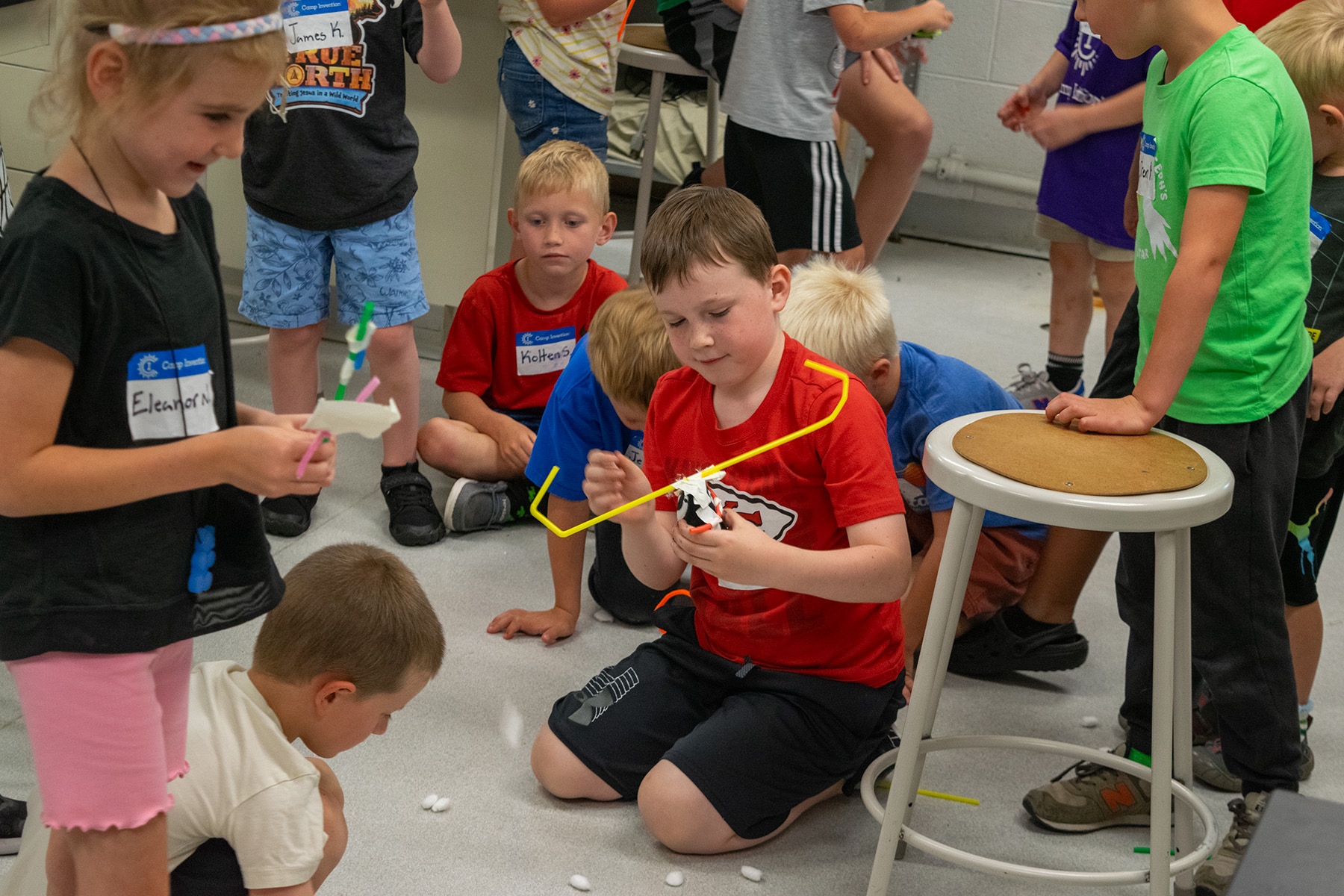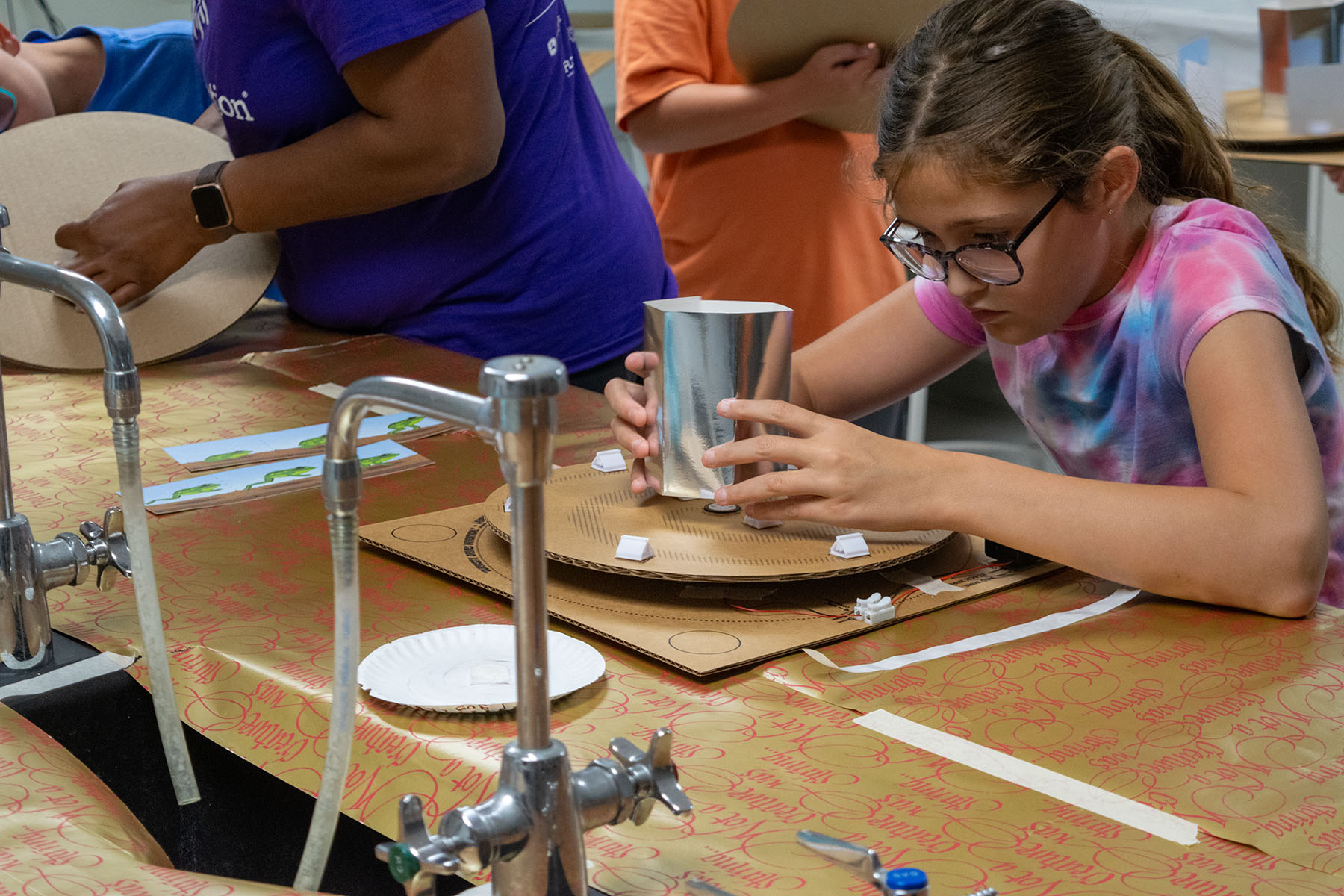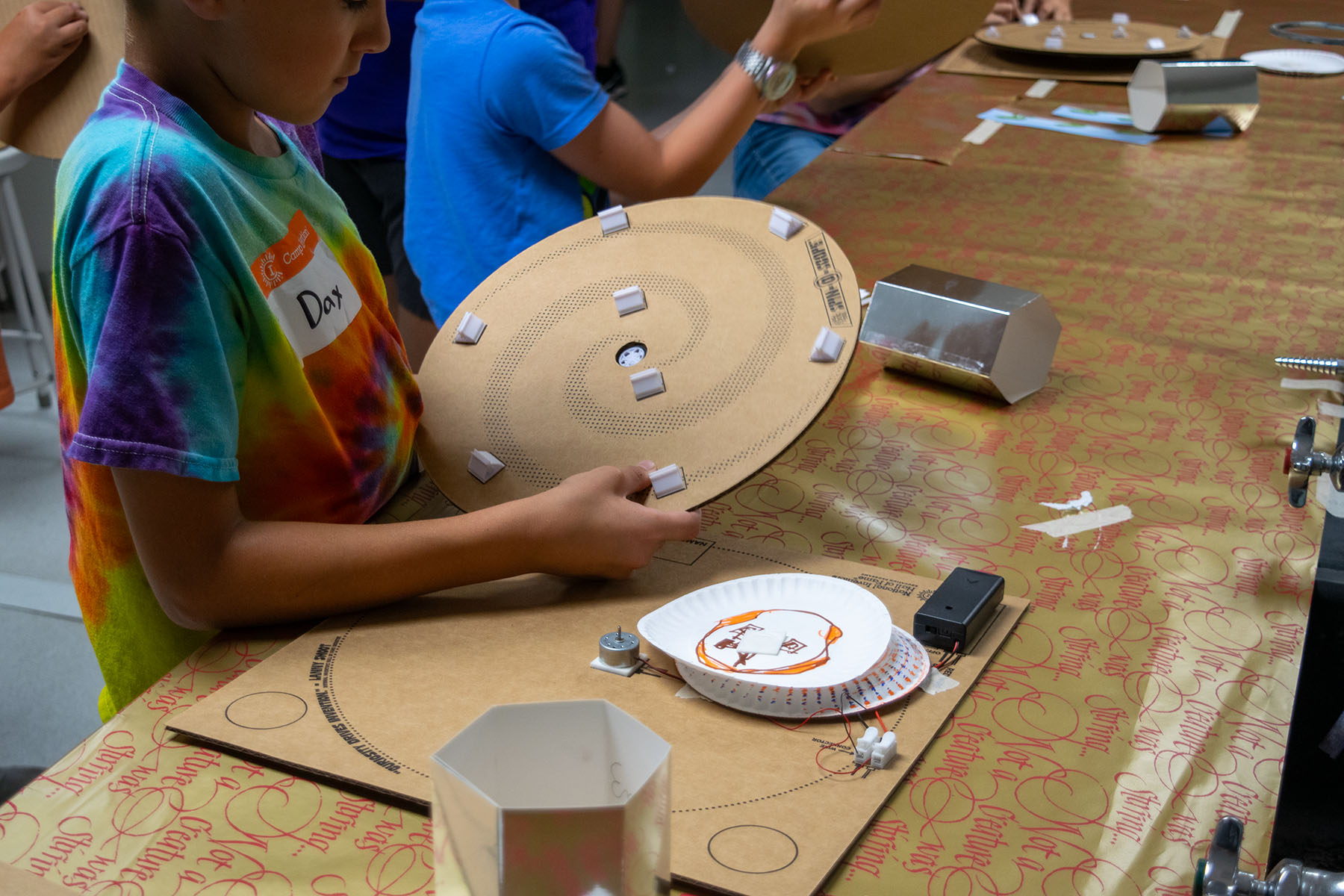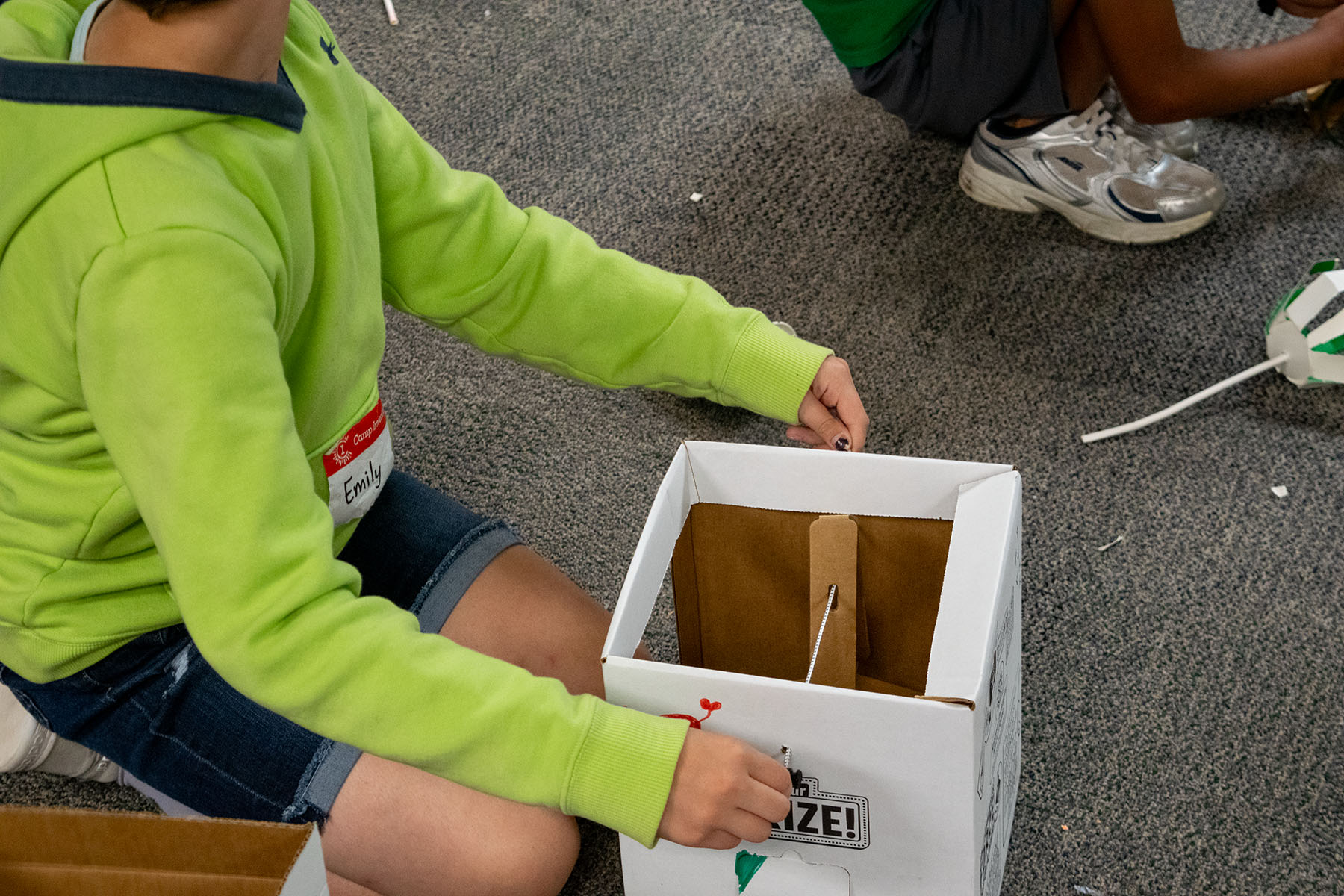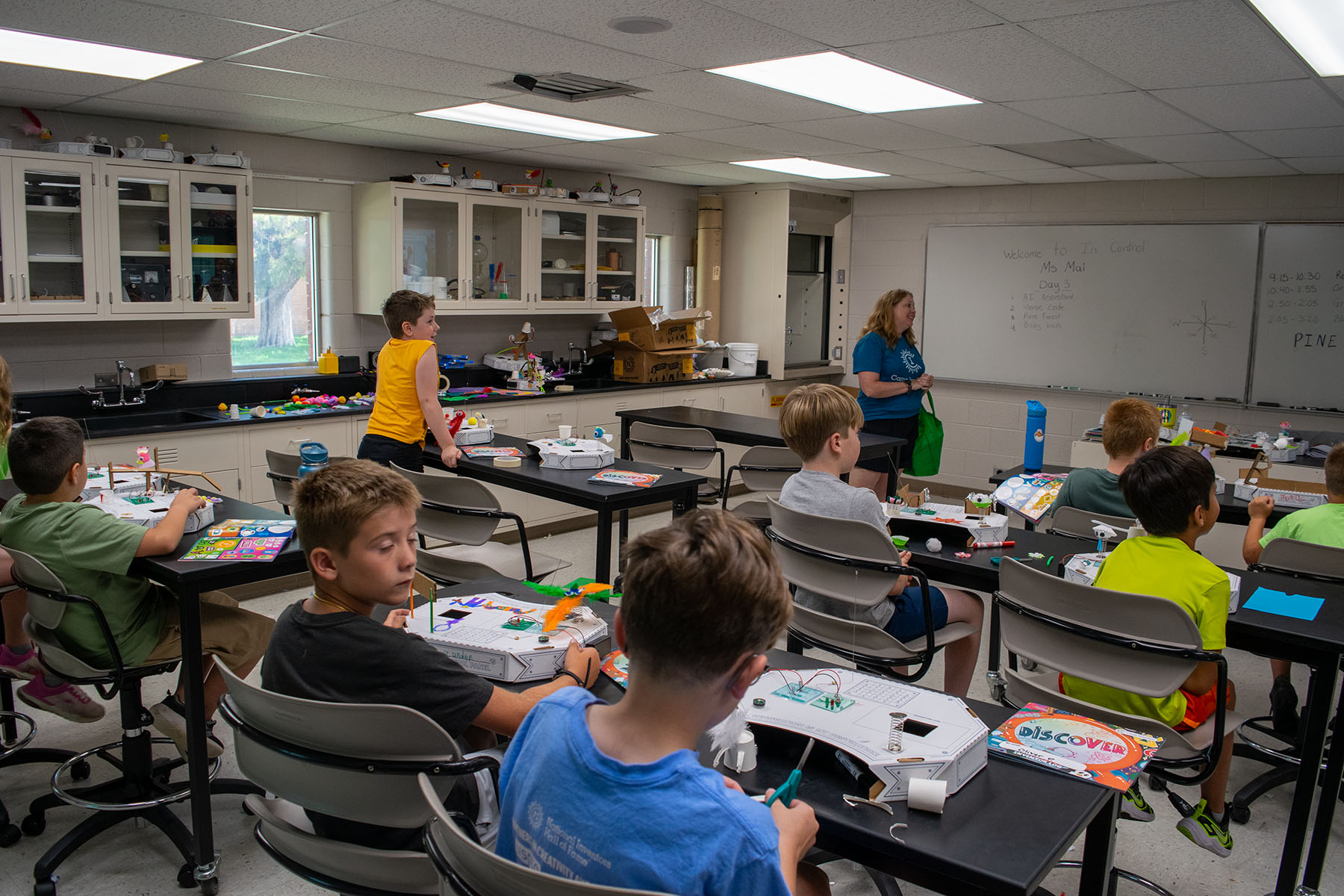19 Jun Camp Invention Brings Hands-On STEM Learning to Local Youth
This week, the National Inventors Hall of Fame (NIHF), based in Alexandria, Virginia, hosted its annual STEM-focused camp, Camp Invention. The weeklong, hands-on program engages students entering grades K–6 in activities centered around science, technology, engineering and math.
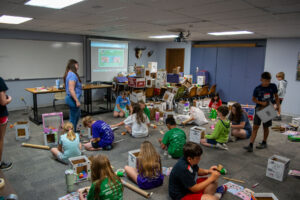
Camp Invention is one of more than 1,500 programs held nationwide. Each camp is led by certified local teachers who are provided with all necessary curriculum materials and supplies, resources not typically available in a standard classroom setting. For some children, the camp offers a rare opportunity to tinker with tools and electronics for the first time.
According to NIHF, many of its inductees cite early experiences like these as key to sparking their interest in STEM. Evaluators also report measurable gains in participant creativity, particularly in elaborations, a key indicator linked to academic achievement.
This year’s camp featured four interactive modules, each designed to teach core STEM concepts through hands-on problem-solving and roleplay. Campers explore creativity and critical thinking while getting a glimpse of real-world careers.
Module 1: Claw Arcade
Campers design and build grabbing tools inspired by animal claws, then use them in fast-paced games. They also become game designers, creating challenges to help free NIHFty Bot from a claw machine.
Module 2: Illusion Workshop
Inspired by Hall of Famer Lanny Smoot, students explore the science of optical illusions and build a Spin-o-scope to experiment with spinning visuals.
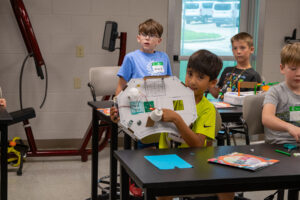 Module 3: In Control
Module 3: In Control
Participants plan a road trip, choose a vehicle, and learn navigation basics using a compass. They build a working control panel and decode a Morse code message to earn their first badge.
Module 4: Penguin Launch
Kids travel to a simulated Antarctica, using custom-built Snow-vers to collect data on four penguin species. Along the way, they observe the behavior and habitat of Adélie penguins in a hands-on exploration of environmental science.
“I think it’s important because it gives these kids the opportunity to invent things,” said Meaghan Mai, a camp instructor. “They must enjoy it. They spend the whole day working with their minds, talking and sharing ideas, not staring at a screen.”
Funding for Camp Invention scholarships was provided by the Kansas Health Foundation Children’s Fund and administered by the McPherson County Community Foundation. A $4,500 grant covered partial or full scholarships for 77% of attendees.
Read more on MCCF’s efforts to spur S.T.E.M. education by bridging funding for Starbase KS.



